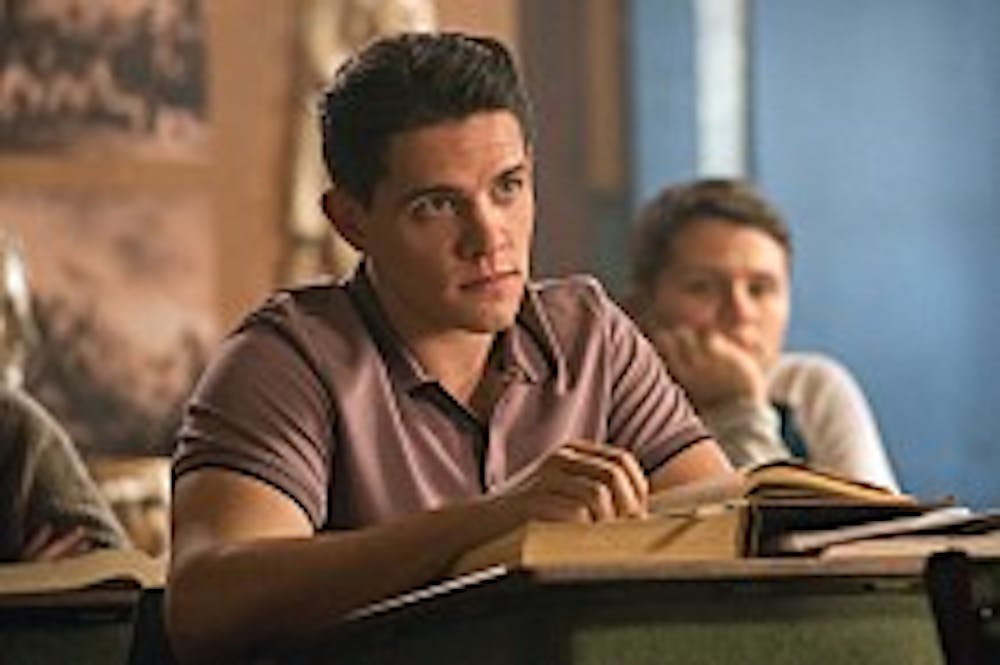It’s no secret that the role of the Gay Best Friend (or GBF, for short) is almost required for any romantic comedy. Where would Mean Girls be without Damian, or Clueless without Christian? However, recent films like The Perfect Date reminded us of the regression and one–dimensionality of the GBF, which can perhaps most easily be seen in the way the role can be wrapped up into three little letters devoid of any nuance.
The Perfect Date was a bad movie to start with, and one of its issues was that of the GBF, Murph (Odiseas Georgiadis). On first glance, his inclusion in the film seems to be progressive. He’s a gay teen, but additionally, he’s a person of color. In a trope so completely dominated by white males, one might think this is a step in the right direction.
But Murph’s character falls flat in any of the brief and truncated moments in which he makes an appearance. His sole purpose is to help the main character achieve his desires, whether they be a university, a car, or a girl. He is relegated to the background, nothing more than a sounding board for the straight character’s thoughts and troubles.
And this raises the larger question: How harmful is the role of the GBF?
Murph isn’t alone in his mismanaged, forgettable part. Time and again, GBFs are assigned roles in which they dole out advice and witty comments to a typically straight female protagonist and then fade into the background, until the next time their support or help is called for. They hardly ever discuss their own personal lives: the romantic interests and sexual exploits of a gay character could distract from the main romance, or perhaps even upset the audience. Their role is shallow, a prop for the protagonist to use at will. That’s not to say that some of the GBFs aren’t great—Damian (Daniel Franzese) is assuredly one of the best things about Mean Girls. But even Damian, who is such a remarkably large and loud presence in the film, adheres to the rules of the GBF. Give advice, make funny comments, don’t allude to your own personal life.
Other well–known GBFs also follow these guidelines. George Downes (Rupert Everett) in My Best Friend’s Wedding offers charming quips and does everything he can to dissuade Julianne Potter (Julia Roberts) from breaking up a wedding to win back her man, Michael O’Neal (Dermot Mulroney). He is perhaps one of the most poorly abused GBFs. Through the sea of banter and incessant advice, Julianne recruits the unwilling George to act as her fiancé to make the unsuspecting Michael jealous. George exists to forward her narrative, and is rather brutally enlisted in her psychotic endeavor to break up Michael's wedding. Whether he likes it or not, George lacks any other defining characteristic that could have helped him fight back.
In Easy A, Brandon (Dan Byrd) only serves to jumpstart Olive (Emma Stone) and her agreements to pretend to have sex with the boys in her high school who are in need of a boost to their reputation (which causes hers to go down the drain). After Brandon is the first to benefit from this experience, which will hide his sexual orientation and prevent him from getting bullying, he virtually disappears from the film. In the more recent Crazy Rich Asians, Oliver T’sien (Nico Santos) dresses protagonist Rachel Chu (Constance Wu) and kindly encourages her from the sidelines. He, too, is flat — there only for the benefit of Rachel.
Sporadic steps have been taken to remedy these issues. The short–lived series My So–Called Life in 1994 featured Rickie Vasquez (Wilson Cruz), a GBF not defined by his sexuality, but his own personal story. He deals with school and family conflicts, and his purpose isn’t to let Angela Chase (Claire Danes) know what he thinks about her dreamy object of interest, Jordan Catalano (Jared Leto). Instead, he has his own plot line and adds significant depth to the friendship of the three main characters.
Riverdale has acknowledged the overplayed archetype when Cheryl Blossom (Madelaine Petsch) asks Kevin Keller (Casey Cott) if “being the gay best friend [is] still a thing.”
Riverdale doesn’t particularly accord Kevin much complexity beyond that. They do allow him a tryst, but it’s given more as an occasional reference than the nuanced and explicit physicality of any of the other on–screen relationships.
It’s harmful to create a reductive stereotype and relegate these characters to the background. It sends the message that they’re not important. Sure, there have been films that foreground gay romances, and not just those of gay males, but of the entire LGBTQ community. But if they appear in heterosexual romantic comedies, they must be treated with consideration and importance rather than used only for comedic effect.







